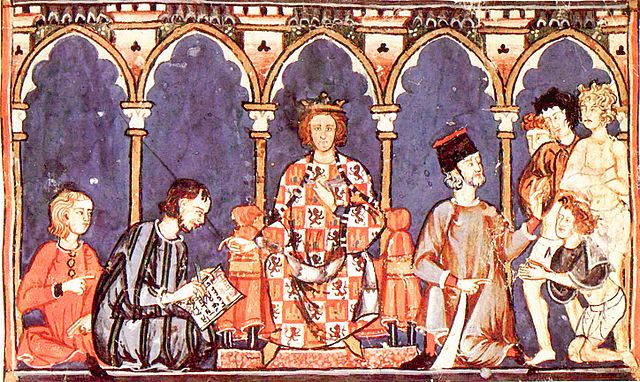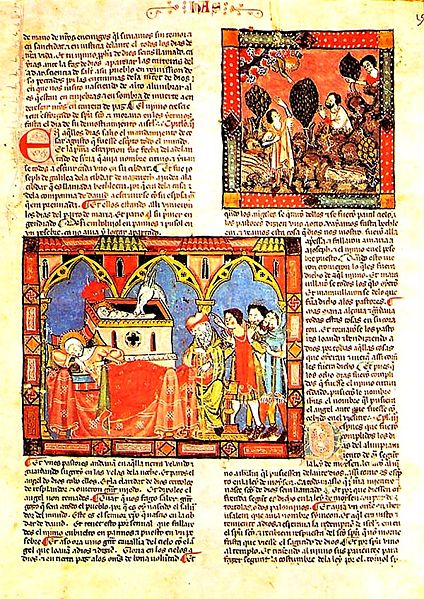Alfonso X of Castile, also known as Alfonso the Wise, ruled from 1252 until 1284. One of Alfonso’s goals for his kingdom was to lift Castile out of the Dark Ages by producing a united, educated, artistic, and religious population. His desire to bring Castile into the mainstream of high civilization led to a boom of cultural activity, including the production and translation of a great deal of literature. The literature produced during his reign was intended to aid him in achieving his goal by giving the common people of Spain access to great intellectual works. Therefore, all of the prose attributed to Alfonso X’s efforts was written in the language of the common people, Castilian, rather than Latin, which was the language of prestige at that time. Although the works are generally attributed to Alfonso X, being a king with other business to deal with he did not himself write most of them. Instead, Alfonso’s role was that of choosing works to be produced and translated, funding the projects, selecting the true authors of the work, overseeing the production, and occasionally contributing personally.

Image: Alfonso X el Sabio y su corte
Image: Partidas
Image: Grande e general estoria (códice del Escorial)
Image: Lapidario
The Siete Partidas or simply Partidas, was a Castilian statutory code first compiled during the reign of Alfonso X of Castile (1252–1284), with the intent of establishing a uniform body of normative rules for the kingdom. The codified and compiled text was originally called the Libro de las Leyes. It was not until the 14th century that it was given its present name, referring to the number of sections into which it is divided.
First page of a 1555 version of the Siete Partidas, as annotated by Gregorio López.
Alfonso X of Castile
Alfonso X and his court
Codice of the Siete Partidas, in "Los Códigos Españoles Concordados y Anotados" (1872)







